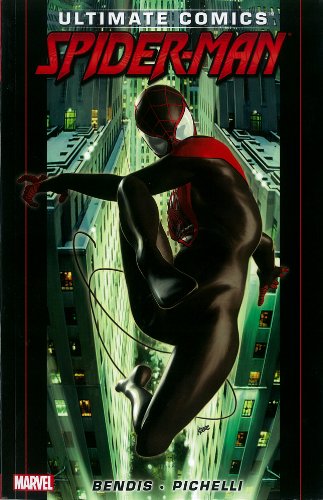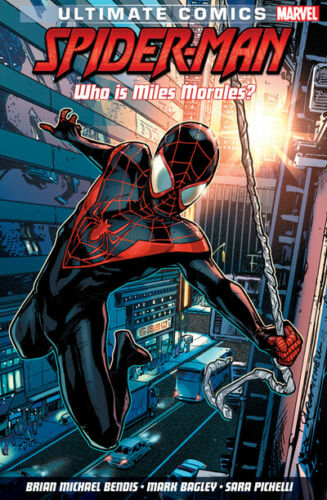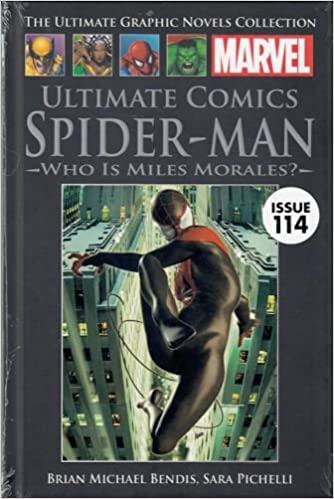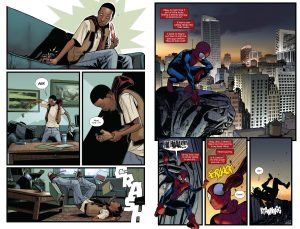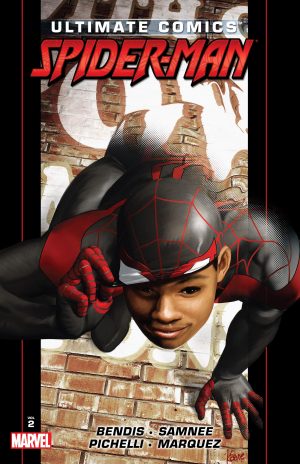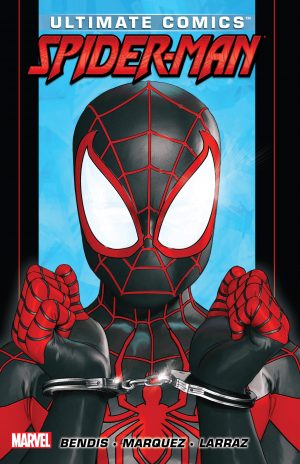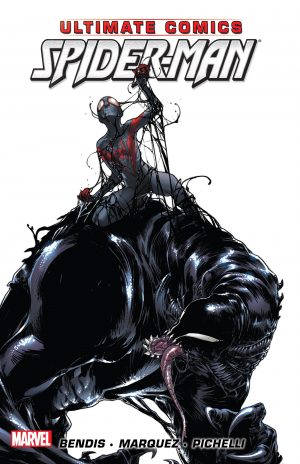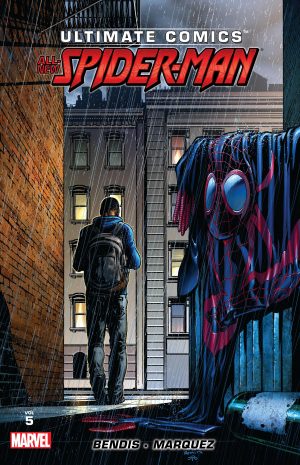Review by Ian Keogh
In 2011 Marvel rebooted their alternate Earth Ultimate Comics line, and Peter Parker became surplus to requirement. Instead Miles Morales became Spider-Man, and this is a leisurely origin story introducing us to Miles, his family and friends, and his first, faltering steps as Spider-Man.
Under Brian Michael Bendis, Parker’s Ultimate incarnation had been a joy from beginning to end, and Bendis ensures much the same is the case for the Miles Morales version. He’s always had a fine ear for dialogue, and uses that well to personalise Miles and his family, but that’s a known quantity. What’s more impressive is the way he twists Spider-Man’s origin for a new era. It still features a teenager, a radioactive spider, and an uncle, but the powers Miles acquires differ from the known. While he’s agile and athletic, he can in effect turn invisible, and has a form of sting. Most importantly, Miles is a young teenager, just entering high school in a very effective opening sequence featuring a lottery, and while his life lacks personal tragedy, his father’s upbringing and younger years were apparently troubled.
Youth is accentuated by Sara Pichelli’s art. She designs a younger looking teenager. You can believe he’s thirteen when first bitten by the spider, and the same applies to his friends. Even more convincingly you can still believe Miles is a small thirteen when he puts on a Spider-Man costume toward the end of the book. Beyond that Pichelli fills in the details around the cast, providing them with proper breathing environments, be that Miles’ best friend’s bedroom, New York as viewed from the rooftops, or the inside of Norman Osborn’s laboratory as featured in a great few opening pages.
That exemplifies why so much of this story is so well written. It’s just a set-up, but Bendis conceals the true purpose behind some inventively threatening dialogue between Osborn and a lackey, although even better is that when we’re well into the series this scene has a further significance. Because there are connections between Miles and the original Spider-Man, Bendis is able to weave a superb tension for readers who recognise them while providing an equally engaging drama for anyone picking this up as their first Spider-Man graphic novel. An early scene has a wonderfully scripted confessional scene in which Miles’ father hints about his past, finishing by saying he wants Miles to be able to talk to him about anything, before a brilliant couple of lines displaying to Miles exactly why he can’t. Equally good is the scene that prompts Miles to consider that he should be Spider-Man, and the one where the phrase “with great power comes great responsibility” is tossed out.
David Messina pencils the final chapter over Pichelli’s layouts, and follows her style closely over the first episode that’s full on superhero action. That’s as creative as the remainder of the book, with the bonus of a few Avengers, yet very neatly tied up. No-one could have faulted Bendis if this had been slightly below par after writing Spider-Man for a decade, but this is as fresh and original as his Ultimate Spider-Man début with Power and Responsibility. It’s a difficult to imagine a lesisurely roll out of a superhero’s origin could have been crafted any better.
In the UK this collection was titled Who is Miles Morales? Both this and volume two were subsequently collected along with Spider-Men in the bulkier paperback Miles Morales: The Ultimate Spider-Man Book One and with a whole lot more content in Miles Morales: The Ultimate Spider-Man Omnibus.
